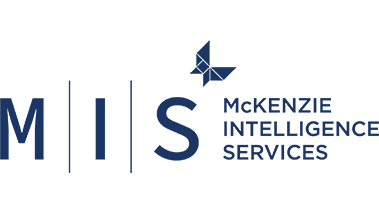Streamline Your Machine Learning Operations (MLOps) with Astro
The practice of Machine Learning Operations requires sophisticated data orchestration to manage the lifecycle of machine learning models, from development to deployment and monitoring.
Astro, the full-stack data orchestration platform powered by Apache Airflow, offers robust capabilities to optimize MLOps workflows, ensuring efficient model development, deployment, and maintenance.
What is MLOps?
MLOps programs involve the standardization of decision making around deploying, monitoring, and managing machine learning models in production. MLOps teams leverage tools across continuous integration, continuous delivery (CI/CD), data management, model monitoring, and governance platforms in order to develop, optimize, and maintain machine learning models. Effective MLOps ensures that models remain reliable, scalable, and secure throughout their lifecycle.
Innovative Companies Use Astro to Operationalize Machine Learning Development
Apply DevOps principles to your Machine Learning (ML) programs with Astro
Seamless Data Integration
Astro excels at integrating data from various sources, essential for training and updating machine learning models. This includes data lakes, databases, APIs, and cloud storage, ensuring your models have access to comprehensive and up-to-date datasets. Astro’s unified orchestration platform seamlessly integrates with a wide range of data sources and tools, ensuring smooth data flow and interoperability across your MLOps pipelines.
Benefits:
- Comprehensive data integration
- Access to diverse data sources
- Enhanced data quality
Scalable Data Pipelines
Astro’s scalable architecture supports the high processing demands of machine learning workflows. This ensures that your data pipelines can handle large datasets and complex transformations required for training and deploying models. With Astro’s elastic scaling, resources are dynamically adjusted based on workload demands, ensuring compute and storage are available only as needed.
Benefits:
- Scalable to handle large datasets
- High-performance data processing
- Efficient resource utilization
Automated Model Training and Deployment
Astro enables the automation of model training and deployment workflows, facilitating continuous integration and continuous delivery (CI/CD) for machine learning. This ensures that models are updated with new data and deployed seamlessly. Astro’s automation capabilities manage dependencies and scheduling, ensuring correct sequencing and execution while minimizing manual intervention.
Benefits:
- Automated CI/CD pipelines
- Reduced manual intervention
- Faster model iterations
Real-Time Data Processing
Astro supports real-time data processing, ensuring that models are trained and updated with the most current data. This is crucial for maintaining model accuracy and relevance in dynamic environments. Astro’s proactive monitoring and alerting provide real-time insights into data pipeline status, ensuring timely updates and continuous model improvement.
Benefits:
- Real-time data updates
- Continuous model improvement
- Up-to-date insights
Advanced Monitoring and Alerts
Astro provides advanced monitoring and alerting capabilities to track the performance of data pipelines and deployed models. This helps identify and resolve issues quickly, ensuring the reliability and accuracy of your machine learning workflows. Astro’s integrated error management facilitates quick identification and resolution of anomalies, maintaining the integrity of your MLOps pipelines.
Benefits:
- Comprehensive pipeline monitoring
- Proactive issue detection
- Enhanced workflow reliability
Robust Security and Compliance
Astro ensures that all data workflows are secure and compliant with industry standards. This includes role-based access control, encryption, and audit trails, protecting sensitive data and model integrity. Centralized management of security policies and compliance requirements across the orchestration stack ensures robust data governance.
Benefits:
- Secure data handling
- Compliance with data regulations
- Protected intellectual property

Why Choose Astro for MLOps?
End-to-End Workflow Automation
Astro’s platform automates the entire MLOps lifecycle, from data ingestion and processing to model training, deployment, and monitoring. This comprehensive automation reduces manual intervention, accelerates development cycles, and ensures consistent model performance.
Scalability and Flexibility
Machine learning workflows often require processing large volumes of data and running complex computations. Astro’s scalable architecture ensures that your MLOps pipelines can handle these demands efficiently, adapting to your organization’s evolving needs.
Continuous Integration and Delivery (CI/CD)
Astro supports CI/CD for machine learning, enabling seamless model updates and deployments. This ensures that your models are always up-to-date with the latest data and improvements, enhancing their performance and relevance.
Real-Time Data Processing
Maintaining model accuracy requires continuous access to real-time data. Astro enables real-time data processing, ensuring that your models are trained and fine-tuned with the most current information available.
Enhanced Model Monitoring
Astro’s advanced monitoring capabilities allow you to track the performance and health of your models in production. This enables quick detection and resolution of issues, ensuring reliable and accurate model outputs.
Security and Compliance
With robust security features tailored to the needs of MLOps, including role-based access control and data encryption, Astro ensures that your sensitive data and models are protected and compliant with industry regulations.
Start Optimizing Your MLOps with Astro Today
Astronomer is your trusted partner in optimizing data workflows for MLOps. Seamlessly integrate diverse data sources, ensure real-time data processing, and maintain high data quality with Astro’s advanced capabilities. Get started with Astro free and start your journey to efficient and effective MLOps today.
Additional Resources
FAQs
What is the definition of MLOps?
MLOps, or Machine Learning Operations, is the practice of deploying, managing, and monitoring machine learning models in production. Effective MLOps involves processes like continuous integration and delivery (CI/CD), data management, model monitoring, and governance. MLOps ensures that models remain scalable, reliable, and secure throughout their lifecycles; and facilitate continuous improvement and integration into real-world applications.
How does Astronomer support MLOps programs?
Astronomer supports MLOps programs by providing a platform, called Astro, for orchestrating machine learning workflows using Apache Airflow. Astro helps automate and streamline model training, deployment, and monitoring of workflows by providing a centralized destination for pipeline orchestration, management, and observability. Astro integrates across an ecosystem of ML tools and data sources to create unified pipelines for easier management across the entire lifecycle of machine learning models.
What are the benefits of automating machine learning workflows?
By automating machine learning workflows, data science teams are able to increase efficiency, reduce manual intervention, and accelerate the path to deployment of ML models into production.
What is the difference between MLOps and DevOps?
MLOps focuses specifically on the lifecycle management of machine learning models, including tasks like data preparation, model training, deployment, and monitoring of those models while in production. On the other hand, DevOps focuses on the delivery and infrastructure management of software applications. While both practices seek to streamline operations and create efficiency; MLOps involved additional complexity due to the requirement to manage the data, models, and feedback loops that are unique to machine learning systems.
What role does data orchestration play in MLOps success?
Data orchestration plays a crucial role in MLOps success by ensuring that all data related tasks – like data ingestion, processing, and transformation – are automated and streamlined. This enables seamless integration of data into machine learning pipelines, reducing bottlenecks, and ensuring that the right data is available at the right time. With effective data orchestration, teams can ensure smoother model training, deployment, and monitoring, improving the overall scalability and efficiency of MLOps processes.


























